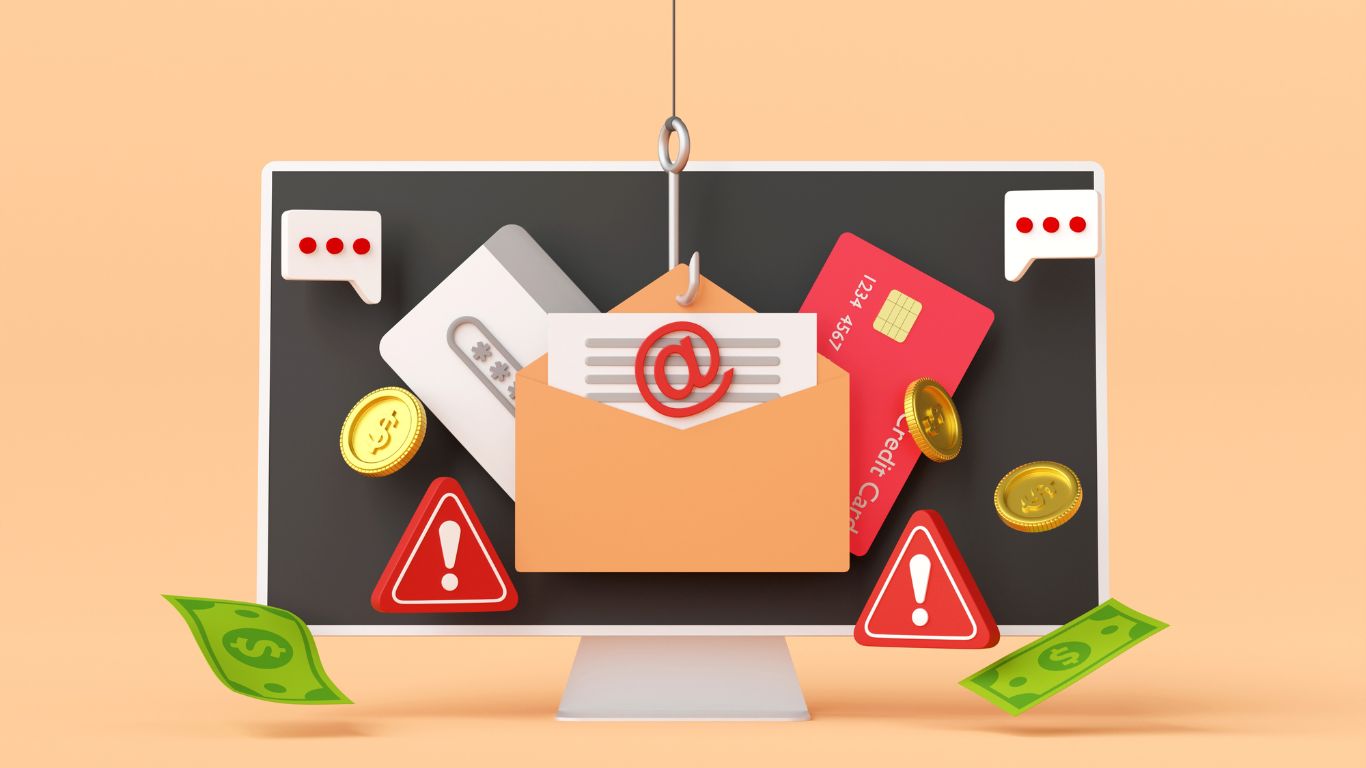Key Takeaways
In today’s digital world, identity theft is a common and evolving crime that can have severe consequences on your personal and financial life.
Familiarize yourself with the various forms of identity theft and the tactics employed by identity thieves, such as phishing and social engineering.
Safeguard your sensitive information, like Social Security Numbers and financial data, by using strong passwords, enabling two-factor authentication, and being cautious online.
Regularly check your bank and credit card statements, review credit reports, and stay informed about data breaches to detect any suspicious activity promptly.
By adopting proactive measures, such as secure password management and limiting the information you share on social media, you can significantly reduce your risk of becoming an identity theft victim.
In today’s digital age, protecting your identity has never been more critical. Identity theft is a pervasive and ever-evolving threat that can wreak havoc on your finances, personal life, and overall well-being.
In this comprehensive guide, we will delve deep into the world of identity theft, exploring its various forms, the tactics employed by identity thieves, and most importantly, how you can safeguard yourself against this pervasive threat.
Understanding Identity Theft
Types of Identity Theft
- Financial Identity Theft: Financial identity theft is one of the most common forms of identity theft. It occurs when an individual’s financial information, such as credit card details or bank account numbers, is stolen and misused for fraudulent purposes.
- Medical Identity Theft: Medical identity theft involves the fraudulent use of someone else’s medical information for healthcare services, prescriptions, or insurance claims. It can lead to serious health complications for the victim.
- Criminal Identity Theft: Criminal identity theft happens when someone uses another person’s identity to commit crimes. This can result in wrongful arrests and a criminal record for the innocent victim.
How Identity Thieves Operate
Identity thieves employ various tactics to steal personal information. Understanding their methods is crucial for prevention.
- Phishing: Phishing is a deceptive practice where criminals pose as legitimate entities to trick individuals into revealing sensitive information, such as passwords or credit card numbers.
- Social Engineering: Social engineering involves manipulating individuals into divulging confidential information through psychological tactics. It can occur in person, over the phone, or online.
- Data Breaches: Data breaches occur when hackers gain unauthorized access to databases containing personal information. Stolen data can then be sold or used for identity theft.
The Financial Impact of Identity Theft
Identity theft can have devastating financial consequences for victims.
How Identity Theft Can Ruin Your Finances
Identity theft often results in unauthorized financial transactions, leaving victims with hefty bills and damaged credit scores.
The Cost of Identity Theft Recovery
Recovering from identity theft can be expensive, requiring legal assistance, credit monitoring, and other resources.
Insurance Options for Identity Theft
Some insurance policies offer coverage for identity theft-related expenses, providing peace of mind for victims.
10 Clever Ways to Protect Yourself
Now that you understand the risks, here are ten effective strategies to prevent identity theft:
1. Strong Password Management
- Creating Strong Passwords: Use complex passwords with a combination of letters, numbers, and symbols. Avoid easily guessable phrases.
- Using a Password Manager: Consider using a reputable password manager to securely store and autofill your passwords.
2. Two-Factor Authentication (2FA)
Enabling 2FA provides an additional layer of security, making it significantly more difficult for unauthorized individuals to access your online accounts.
You should enable 2FA wherever possible, as it is a versatile security feature available on various online platforms and services, offering protection across multiple accounts.
3. Secure Your Personal Information
- Safeguarding Your Social Security Number: Protect your Social Security Number (SSN) and avoid sharing it unless absolutely necessary.
- Protecting Your Financial Data: Be cautious when sharing financial information online or over the phone.
4. Beware of Phishing Scams
- Recognizing Phishing Emails: Learn to identify phishing emails by checking for suspicious sender addresses and links.

- Avoiding Phishing Websites: Never click on links in unsolicited emails and be cautious when visiting unfamiliar websites.
5. Regularly Check Your Financial Statements
Regularly monitoring your bank and credit card statements is essential to remain vigilant against any unusual or unauthorized transactions.
Detecting suspicious activity early allows you to take immediate action, potentially minimizing the financial damage and preventing further unauthorized transactions.
6. Monitor Your Credit Reports
Proactive vigilance: Regularly reviewing your credit reports is a proactive measure to stay vigilant against any irregular or suspicious financial activities.
Prevent financial harm: By consistently monitoring your credit reports, you can prevent potential financial harm by identifying and addressing any unauthorized or fraudulent transactions early.
7. Shred Sensitive Documents
Secure disposal: Shredding sensitive documents, particularly financial statements and bills, ensures that your personal information remains secure when you dispose of them.
Prevent identity theft: Shredding documents containing sensitive details reduces the risk of identity theft, as it makes it nearly impossible for thieves to reconstruct the information from the shredded pieces.
8. Don’t Overshare on Social Media
Restricting the personal information you share on social media is a vital step in safeguarding your privacy and reducing the risk of identity theft.
limiting the details you share, you reduce the amount of sensitive information available to potential identity thieves.
Practicing caution on social media platforms helps maintain control over your online identity and keeps your personal data more secure.
9. Secure Your Devices
Protect your devices from malware and hackers.
- Keeping Your Computer Safe: Install antivirus software and keep your operating system and software up to date.
- Protecting Your Smartphone: Use security features like screen locks and encryption on your mobile devices.
10. Stay Informed About Data Breaches
Keep yourself informed about data breaches and take immediate action if your data is compromised.
Conclusion
Identity theft is a pervasive threat that can have severe consequences for victims. By understanding the various forms of identity theft and adopting preventive measures, you can significantly reduce your risk of falling victim to this crime. Remember, vigilance and proactive steps are your best allies in the battle against identity theft.
FAQs
What is identity theft?
Identity theft is the fraudulent use of someone else’s personal information, such as their name, Social Security Number, or financial data, for illegal purposes.
How can I prevent identity theft?
You can prevent identity theft by practicing strong password management, enabling two-factor authentication, safeguarding your personal information, being cautious of phishing scams, monitoring your financial statements, and staying informed about data breaches.
Is identity theft a common crime?
Yes, identity theft is a prevalent and ever-growing crime in the digital age, affecting millions of people each year.
What should I do if I suspect I am a victim of identity theft?
If you suspect you are a victim of identity theft, immediately contact your financial institutions, credit bureaus, and law enforcement agencies to report the incident and take necessary steps to protect your identity.
Are there any insurance options for identity theft?
Yes, some insurance policies offer coverage for identity theft-related expenses, providing financial protection for victims.


